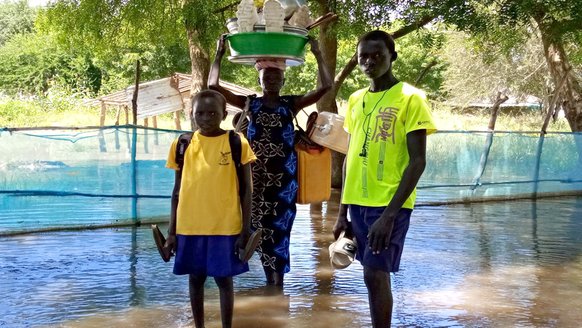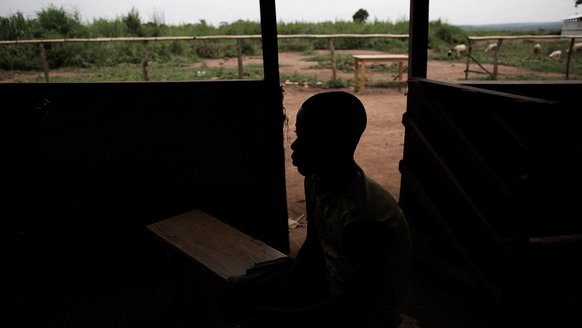Former Child Soldier Uses His Experiences to Break the Cycle of Trauma
Feb. 12, 2022
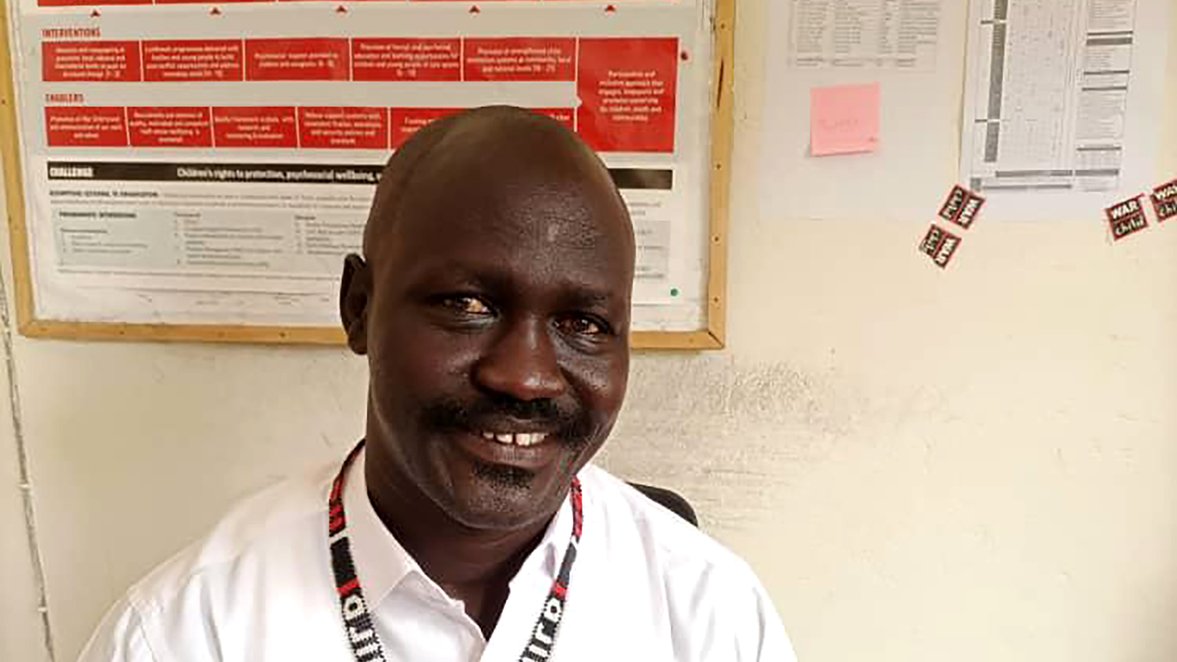
Recruited as a Child Soldier
Spending his first days of life on the shores of the Nile river, it wasn’t long before the Civil War reached John's village, separating him from his beloved grandmother and assigning him to a life on the run. That’s when he became one of the so-called ‘Lost Boys’ - more than 30,000 Sudanese children who fled their homes in the late 1980s, walking more than 1,000 miles over several months to Ethiopia.
After a grueling journey, one where he narrowly escaped death, John was forced to flee once again - returning to South Sudan where he was quickly recruited by government forces. Over the course of three years, he was trained as a soldier before becoming a trainer of other young militants.
Now, a proud father and cherished Psychosocial Support Officer and Field Coordinator for War Child, Garang is determined to use his experiences as a force for good.
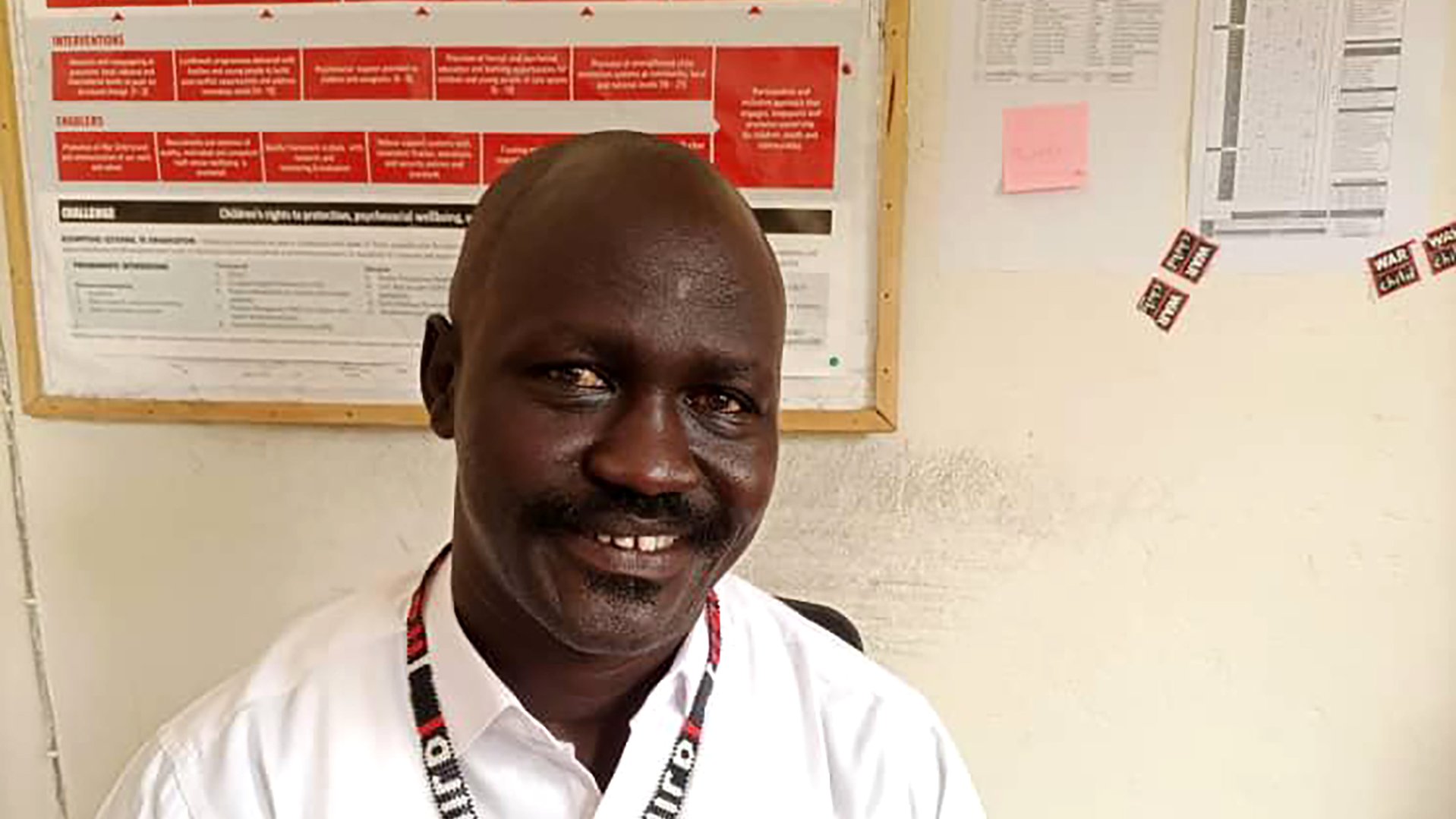
John smiles for a photo from his head office in Juba, South Sudan
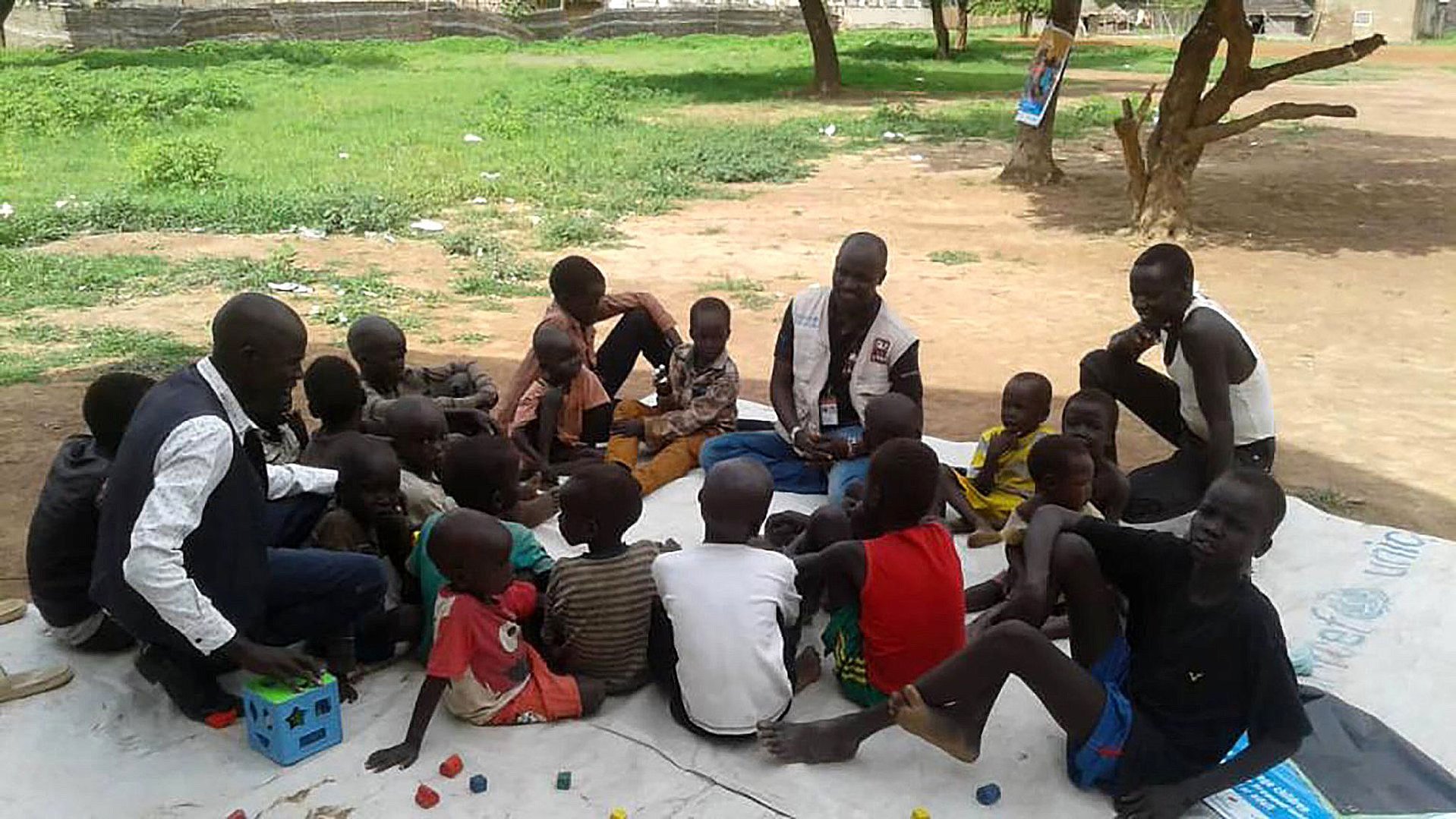
John offers empathy and understanding to create a protective circle around young people
Extra Antenna
How, exactly does he go about this? “If a child has been trained as a soldier, I can tell immediately”, he says. “I can see it in their eyes, the way they move.”
Having been that child and lived to tell the story, John is using this ‘extra antenna’ to reach children in his work that may otherwise be unreachable. “Children can be used and abused by armed groups in lots of different ways”, he explains. “They’re not all soldiers.”
“What I try to teach them is that there is a way out - no matter how lonely it feels. I also remind them that they do have power, but they can use it to have a positive influence.”
Mind Games
And that’s an important nuance in this story…
Garang: “As a child in South Sudan - both then and now - you’ve already lived through violent events and, more often than not, seen that violence take your loved ones.
“So, in the beginning, when you’re handed a gun, that feeling of power is exhilarating. No-one can touch you and you have the capacity to revenge.”
John goes on to recount painfully how all of these mind games accumulated in a highly effective training process. “It starts slowly - first we were given a small stick that symbolizes a gun, then we were handed the real thing. You cannot put it down, it never leaves your side - you even sleep with it. My weapon became my only friend.”
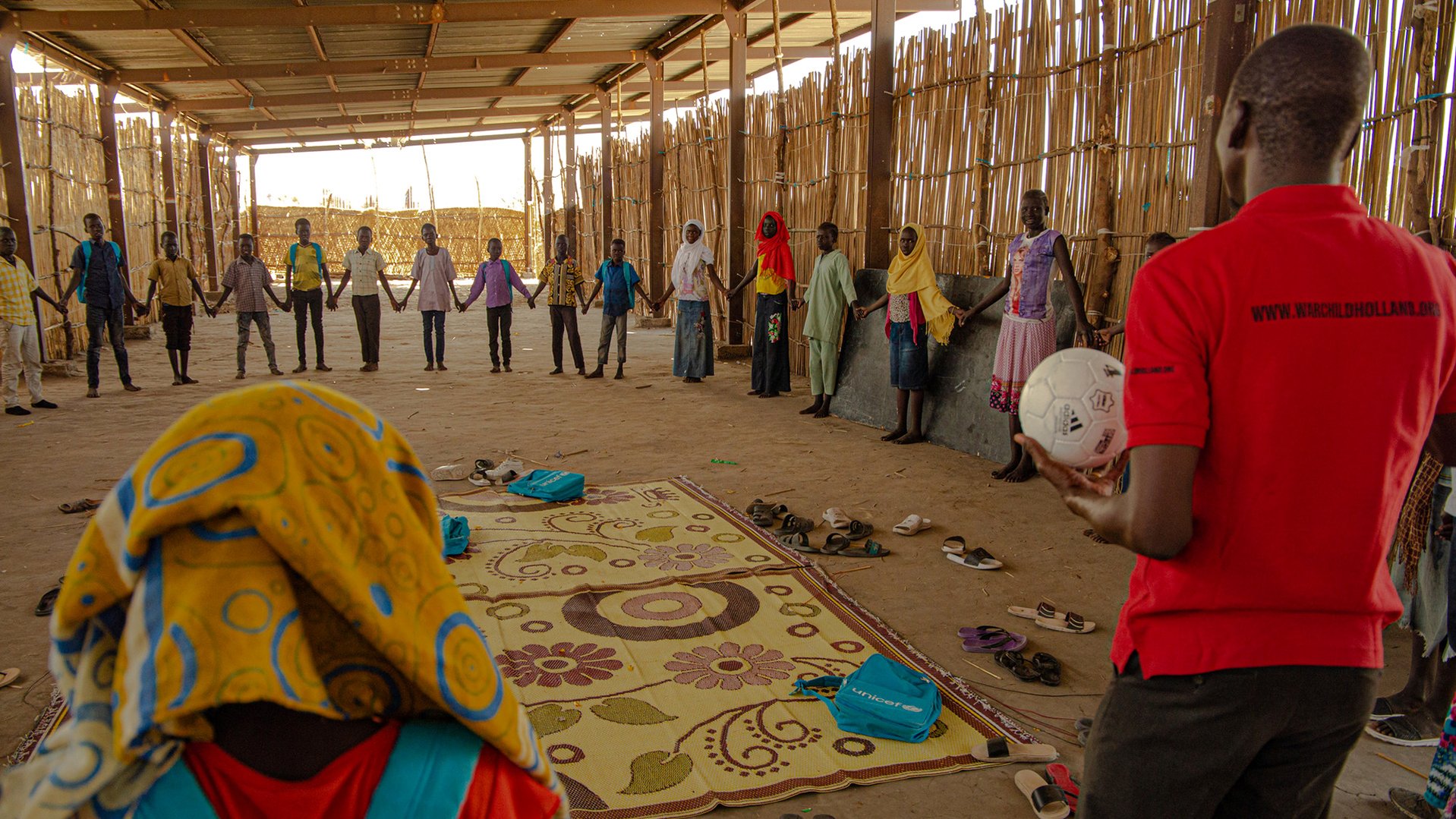
Armed conflict purposely erodes trust. We work to rebuild it.
Breaking the Cycle
With a long history working with children (formerly) associated with armed groups and forces, War Child understands the many complex factors that allow children to be lured in. That’s why our response is as equally multi-faceted. “It’s not just protection, its not just job-creation and it’s not just education or psychosocial support”, says Kevin Ndemera, our Country Director in South Sudan. “All these things have to happen in tandem so that communities are equipped to reintegrate children and help them flourish.”
One thing’s for sure - John is living proof that with a little support, you can turn it all around. In fact, you can do a whole lot more…
“It’s about seeing the worst side of your country and using that fire inside you to make it better”, says John. “The next step is to extend this message to the powers that be, so that my children, grandchildren and indeed their children can live a life free from trauma.”
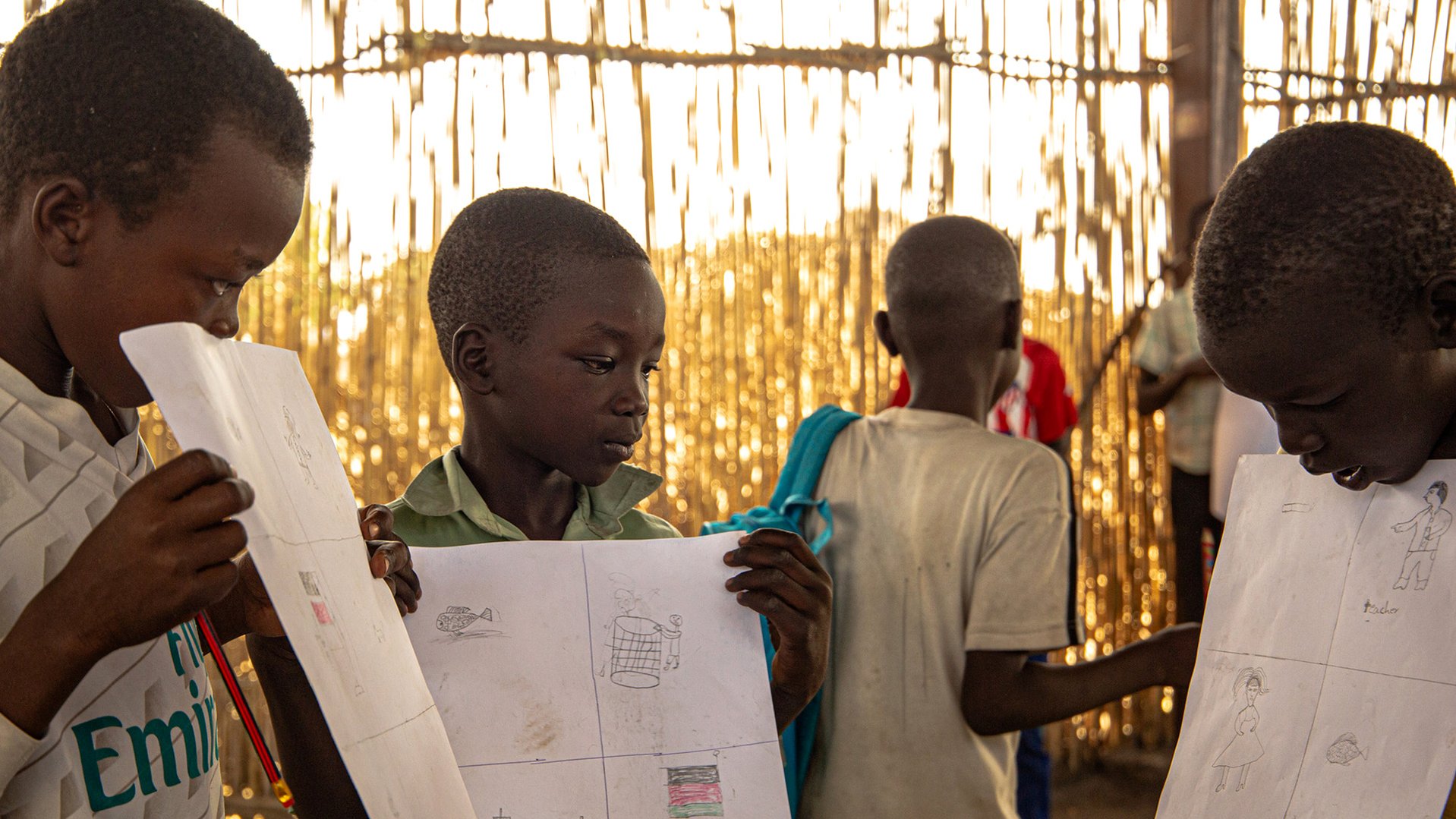
Through an expert combination of psychosocial support, education and protection, children can slowly begin to heal
Red Hand Day or the International Day against the Use of Child Soldiers takes place annually on 12 February. The day sets out to raise awareness about the use of children by the military or other rebel groups as well as address the factors that lead to child recruitment. With more than 330 million children at risk of recruitment to armed groups and forces worldwide, we owe it to John and countless others to make their voice heard.
